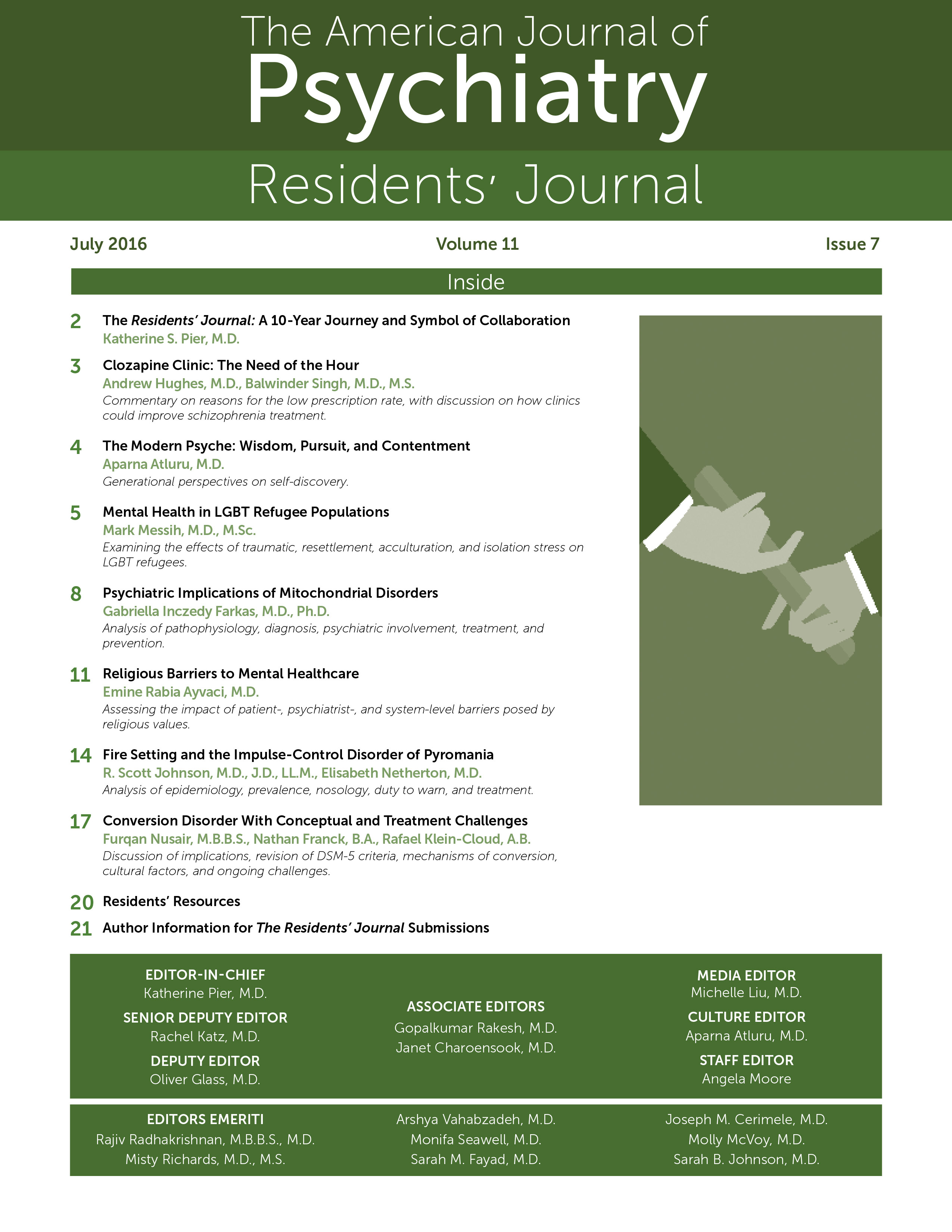“You cannot be this many things!” my father insisted, when I, then a college student, asked him if I could add on a third liberal arts major, as a component of my self-discovery. The Indian part of him surfaced. He believed that one goes to college to study something substantive: medicine or business or engineering. Self-discovery could not be planned for: it was serendipitous. As long as I was pursuing self-discovery, I was guaranteed not to find it.
My father is patriotic. But he has Eastern sensibilities. He tells me that the problem is inherent in the Constitution. “It is their reference to a pursuit of happiness,” he says “that causes perpetual disappointment.” “It’s just pursuit, pursuit, pursuit,” he tells me. “There is no contentment. No wonder everyone is seeing a psychiatrist.”
He of course has been slowly, rather uncomfortably, adjusting to the idea that I chose to go into psychiatry. It has been 3 years now. I’ve almost completed my residency. He still wonders if psychiatrists are “doctors” in the sense of doctors he grew up with.
When I talk to him about my desire to work heavily in psychotherapy, he tells me that people would not need psychotherapy if they were content. I tell him he is stuck on semantics. He tells me that the semantics point toward him being right.
My father is an engineer. He prefers solid things—numbers and engines and the steel frames used to construct bridges. He is not comfortable dealing in the realms of ephemeral self-discovery or psychological fugues.
He then shifts to the Western emphasis on individuality. He says not only does everyone want happiness, they want their own special kind of happiness. He tells me that nowadays being an individual isn’t enough. Everyone has to be four or five individuals. And each of these individuals has to be happy. It’s madness.
He goes on. Fifty years ago, everyone was content with doing one thing well. Now everyone has to be a world-renown lawyer and a thriving entrepreneur during the daytime, a performance artist at night, and an Olympic rower on the weekends.
Statistically this is impossible, he tells me.
He has two master’s degrees in engineering and one in statistics. I trust him on the stats.
I am guilty of subscribing to the fallacy of the individual(s). I, of course, tell him that I am a humanist, a writer, a physician, a philosopher of sartorial taste, and connoisseur of chocolate cake. I’ve told him that art and uniqueness and individuality are the new American century.
Yet, I think he might be right.
You can be as many things as you want to be on twitter, but perhaps this comes at an expense. Ancient cultures worried that being photographed could steal the subject’s soul; If this were even a little true, today’s youths have vanquished their souls through the ubiquitous selfie.
As psychiatrists, we are now embracing “alternative forms of therapy”—everything from depression-detecting apps, to mindfulness monitoring and telepsychotherapy; It makes me wonder if we’ve forgotten about the simplest of things—the wisdom of elders.
